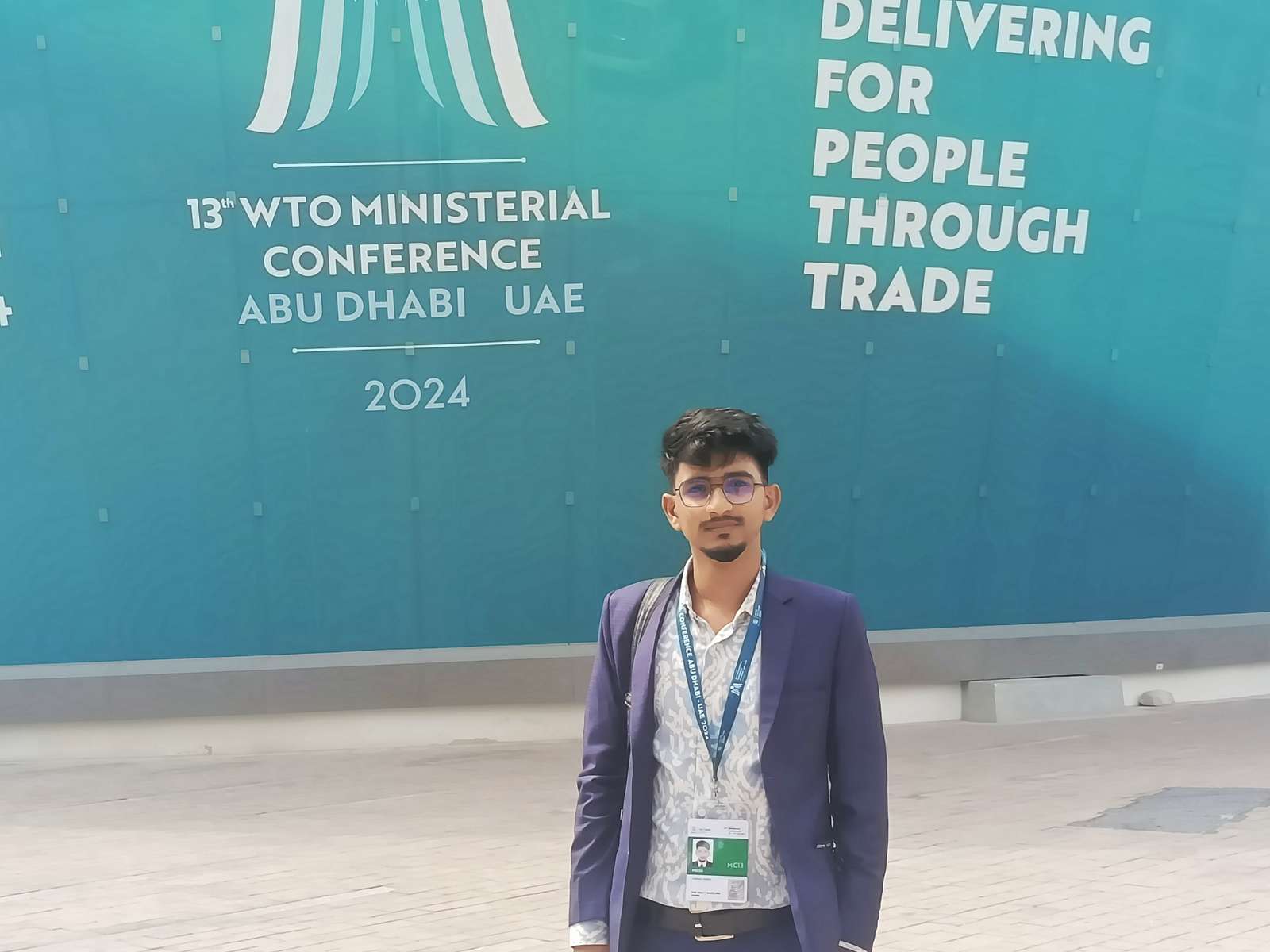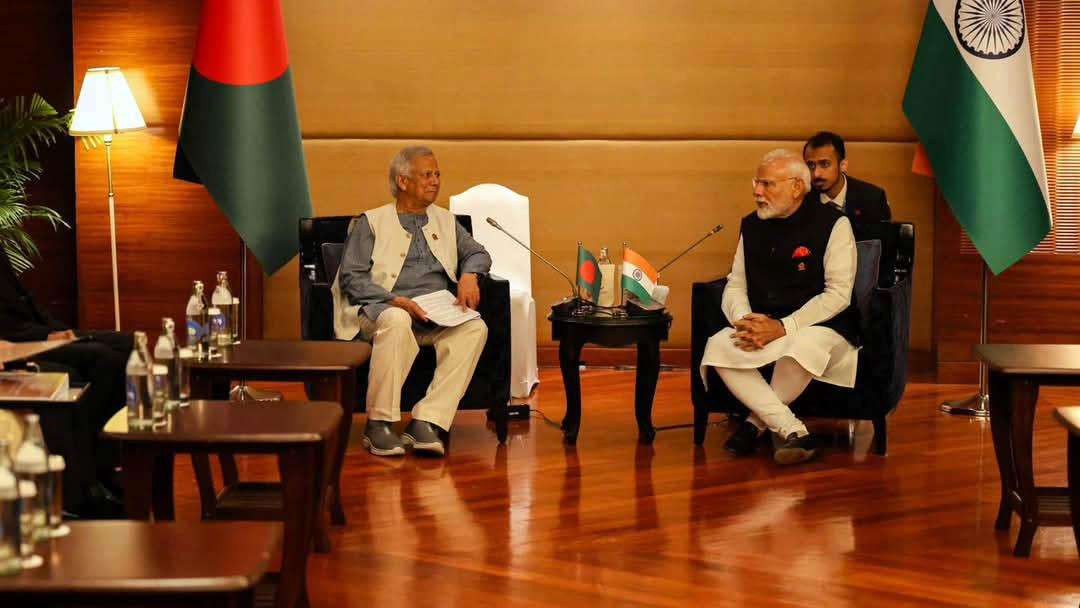In a landmark development in South Asian diplomacy, Bangladesh’s Chief Adviser Professor Muhammad Yunus and Indian Prime Minister Narendra Modi held a high-level bilateral meeting in Bangkok on Friday —the first official interaction between the two leaders in a decade.
Held on the sidelines of the BIMSTEC summit, the 40-minute discussion was described as candid, productive, and constructive by both parties. The meeting marked a significant step forward in revitalizing relations between the neighboring nations, with both leaders emphasizing shared historical ties, cultural affinities, and mutual aspirations for regional peace and prosperity.
“Bangladesh deeply values its relationship with India,” said Professor Yunus. “Our nations are bound by intertwined histories and mutual respect. We remain grateful for India’s unwavering support during our struggle for independence in 1971.”
Prime Minister Modi reciprocated the sentiment, stating, “India attaches the highest priority to its relationship with Bangladesh. Our histories are inseparably linked, and our cooperation is rooted in people-to-people ties, not political affiliations.”
Key Issues Discussed
Among the critical topics addressed were cross-border security, regional trade, water-sharing agreements, and ongoing concerns over political tensions in Bangladesh.
Professor Yunus sought India’s support for a proposed Free Trade Agreement among BIMSTEC members and emphasized the importance of renewing the Ganges Water Treaty and finalizing the long-pending Teesta Water Sharing Agreement.
He also highlighted recent findings from the UN Human Rights Office's fact-finding report, which cited grave human rights violations during political unrest in mid-2024. The report pointed to evidence of crimes against humanity, including the deaths of approximately 1,400 protesters—13 percent of whom were children.
Yunus expressed concern about the presence of former Prime Minister Sheikh Hasina in India, claiming she had made inflammatory remarks aimed at destabilizing Bangladesh. He called on India to take appropriate action, stating, “She has consistently made false and incendiary accusations against the interim government, which constitutes an abuse of the hospitality extended to her.”
In response, Prime Minister Modi urged caution over social media misinformation and reiterated India’s commitment to neutrality. “Our relationship is not with any individual or party—it is with the people of Bangladesh,” he affirmed.
Border Killings and Minority Rights
Border security was another key point, with Professor Yunus expressing sorrow over civilian deaths along the India-Bangladesh frontier. “We must find ways and means to prevent these incidents and strengthen mutual trust,” he said.
Modi assured that Indian border forces acted only in self-defense and called for greater cooperation to manage the issue effectively.
On concerns raised by Prime Minister Modi about the treatment of minorities in Bangladesh, Professor Yunus dismissed many of the reports as exaggerated or false, inviting India to conduct independent investigations. He assured that his government had implemented a robust monitoring system to prevent religious or gender-based violence.
The meeting concluded on a hopeful note, with both leaders expressing their commitment to closer collaboration. Professor Yunus outlined his vision for a revitalized BIMSTEC under Bangladesh’s chairmanship, aiming to boost the region’s global trade connectivity and development.
The discussions were attended by key dignitaries, including Bangladesh Foreign Adviser Md Tauhid Hossain, High Representative Dr. Khalilur Rahman, Indian External Affairs Minister S. Jaishankar, and National Security Adviser Ajit Doval.
Both sides agreed to continue high-level engagement and pledged to build a future defined by peace, inclusivity, and regional cooperation.








.svg)


